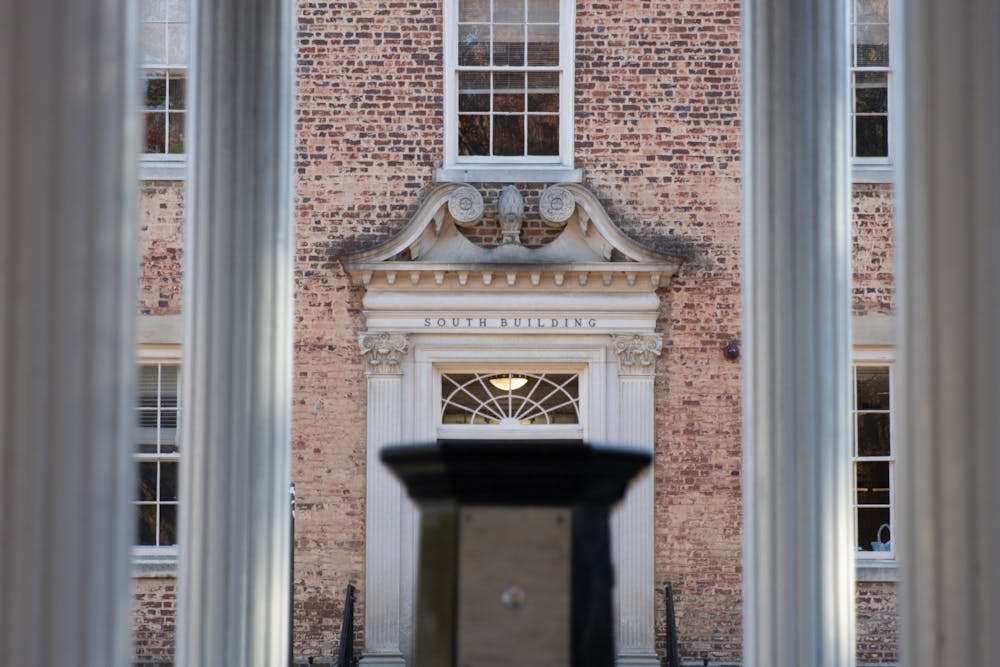Each trustee voted yes on the undisclosed items except Student Body President Lamar Richards, who voted no on one item and abstained from the other two.
This was expected — once again, student voices show they are the ones who must take on a more active leadership role in the face of ineffective governance.
The provost is chosen after a search committee sorts through nominations, interviews and recommends candidates to the chancellor. The chancellor then has the power to choose a finalist from those candidates, then presents the individual and their credentials to the BOT.
For a high level position such as provost, it is an irresponsible move by the BOT to not be transparent on personnel hiring matters — and potentially violating the state Open Meetings Law in the process.
State law says public bodies “shall not deliberate, vote, or otherwise take action upon any matter” by referencing a letter, number or any other “secret device or method, with the intention of making it impossible for persons attending a meeting of the public body to understand what is being deliberated, voted, or acted upon.”
The hiring was not listed as a public agenda item — suggesting that the Board knew it was a controversial decision, but wanted to avoid public discourse.
Faculty Chairperson Mimi Chapman discussed the political pressure surrounding the decision in an op-ed in the Daily Tar Heel.
“[Guskiewicz was] under significant pressure to make a particular choice,” Chapman wrote. “Interference by trustees, donors or the UNC System into searches, particularly for the provost — the chief academic officer, the person who oversees all aspects of faculty life — devastates those relationships and undermines the chancellor’s ability and authority.”
In response to the provost announcement, Chapman stated that she stood by her earlier comments, and that "The UNC-CH Board of Trustees, UNC's General Administration and the Board of Governors have regularly interfered in campus affairs which fuels distrust within the campus community."
This isn’t a UNC-specific issue. Across North Carolina higher education, we are seeing consistent, conservative leadership — and with a Republican majority in the North Carolina General Assembly, this comes as no surprise. But with these institutions being expected to provide an environment that values free and diverse thinking and discourse, it endangers the very foundation universities were built on.
Rob Schofield, director of N.C. Policy Watch, has previously discussed this pattern.
“It’s clear that the System leadership has taken a hard right turn in recent years and now envisions a purpose for the university that is very different from the majority of professors and students,'' Schofield said. “... So long as politicians are involved in selecting the BOG members (and I don’t see how to change that), politics will invariably be a significant factor in the oversight of UNC.”
To get the day's news and headlines in your inbox each morning, sign up for our email newsletters.
As a former UNC Chancellor, Holden Thorp, puts it: "Academic freedom is fragile." University leaders must stop attempting to please alumni, trustees and political figures — because it undermines their own institutions.
At their roots, universities perpetuate systems of oppression. With a long history of discrimination and exclusion that can be traced back to the University’s founding, UNC’s institutions mirror those of its private and elite counterparts — regardless of a progressive faculty and student body.
After decades of unadulterated racism, violence and controversy across campus, hiring a new executive leader under the influence of a polarized political climate is a disservice — not only to the UNC community, but higher education across the board. Transparency about hiring decisions is only the first step in preserving universities as trusted institutions by all communities.
@dthopinion
opinion@dailytarheel.com



